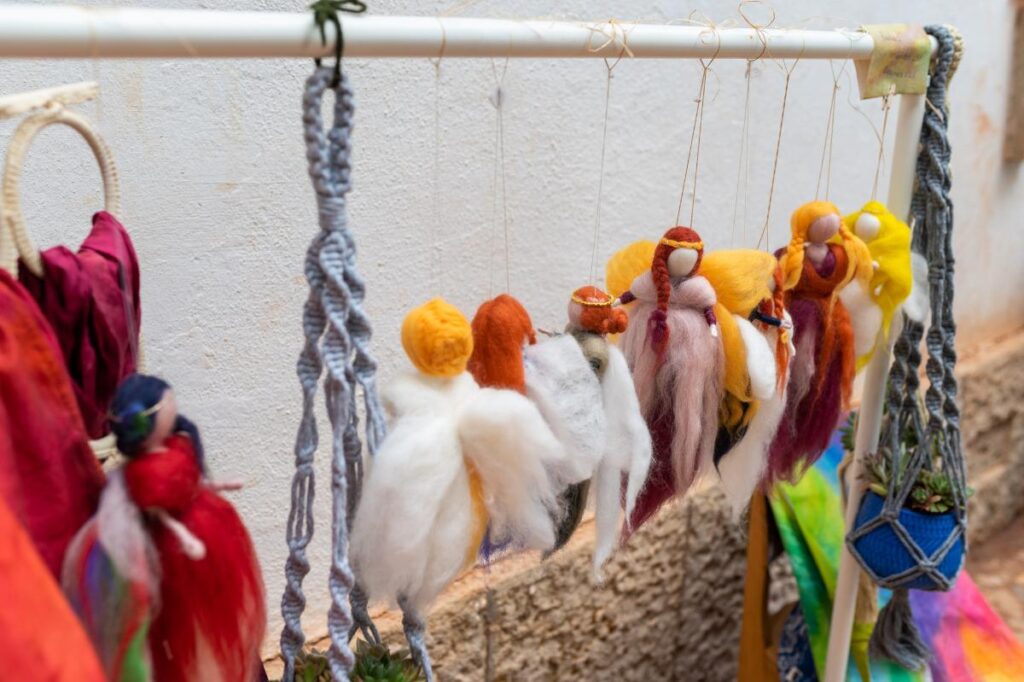
Daily Life at Escola Waldorf a Oliveira
All students begin the day with an opening song/poem in a common area, then move to their respective classrooms.
Structure of the day in the classroom:
- Greeting and a poem of the season
- Rhythmic part: rhythmic and spatial orientation exercises (songs, dances, games, poems in motion) possibly aided by balls, rice bags or wooden sticks
- Content part: reviewing the previous day’s material and listening to new material. The new content is first experienced through the body and the senses and then worked on in the notebook with more technical exercises.
We call this first part of the day the Main Lesson, where the class teacher covers Portuguese language and mathematics (social studies is integrated into these areas and thus also conveyed to the children, without the need for a separate approach).
The main lesson usually ends with a story/tale and a short break for a snack.
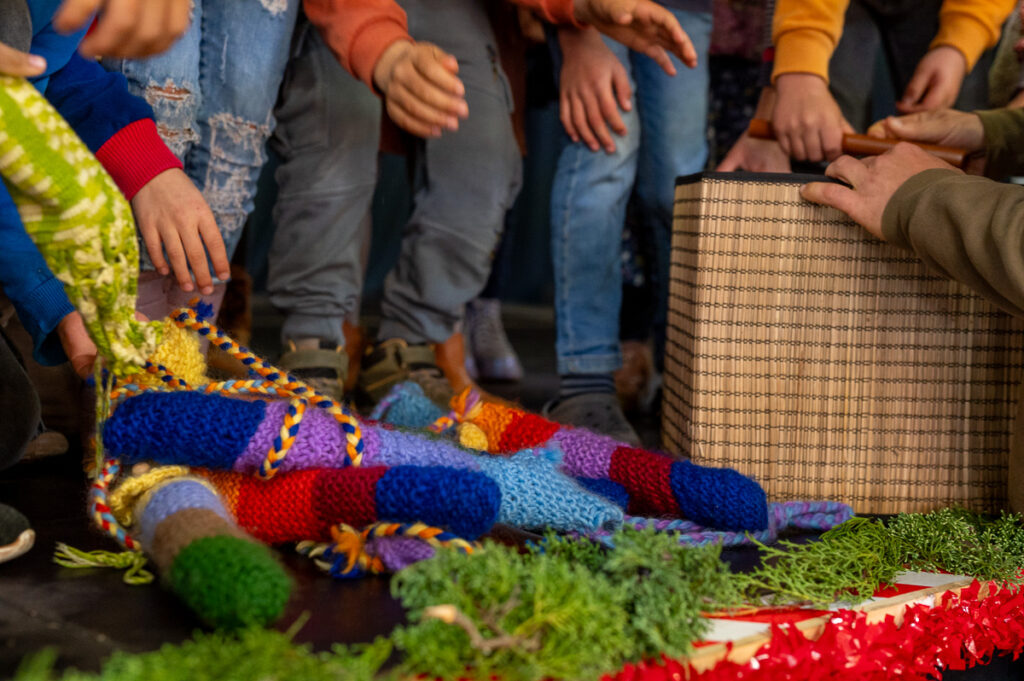
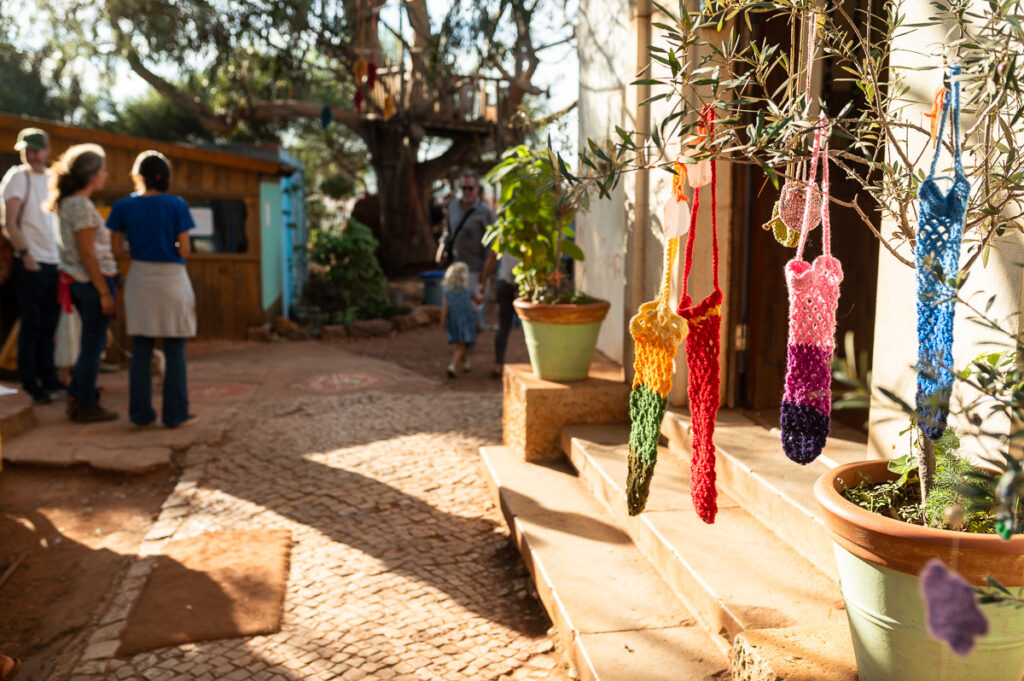
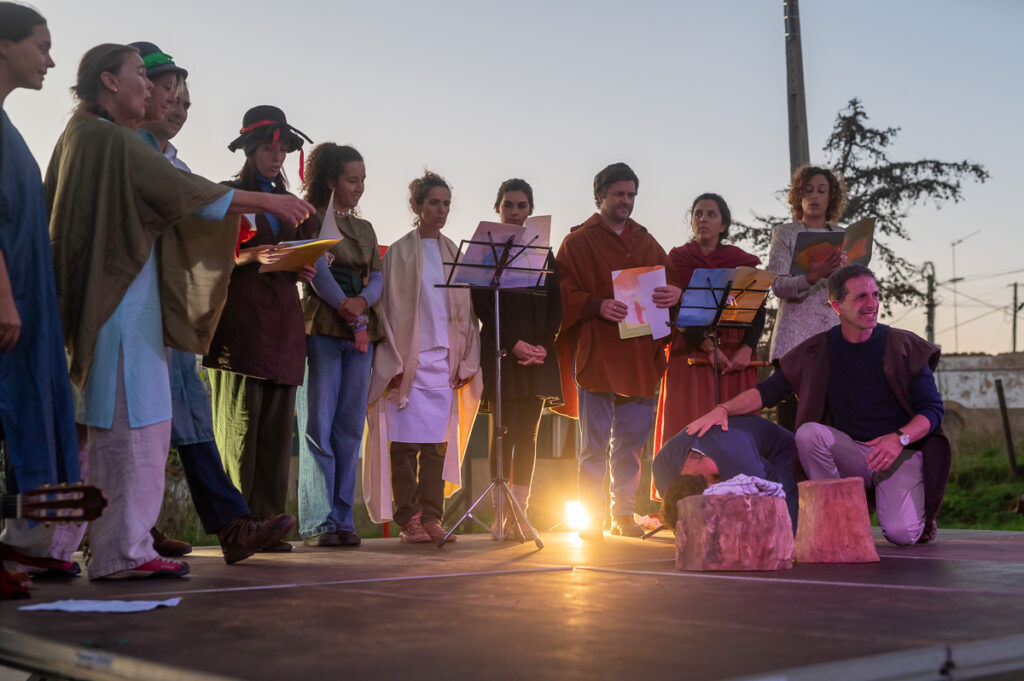
The moment of the story/narrative
Story time in the main lesson is of great importance throughout the entire school career from 1st to 12th grade. The content of these narratives corresponds to the stages of the awakening of consciousness in humans present in all cultures, in their oral and literary heritage.
The themes listed below are a European reference intended for Western culture with classical and Judeo-Christian roots. In schools on other continents, such as Asia or Africa, the core remains the same, but the context varies. The eternal truths of the Cosmos, Nature and Humanity remain.
School years, stories and narratives:
- 1st year – Fairy tales
- 2nd year – Fables and Lives of Saints
- 3rd year – Episodes from the Old Testament
- 4th year – Norse and Egyptian myths
- 5th year – Myths and episodes from the ancient civilisations of India, Egypt and Greece.
- 6th year – Myths and episodes from ancient Rome.
- 7th year – Legends and episodes from nomadic peoples who arrived in Europe
- 8th year – Relevant biographies in the fields of science, human rights, art, literature, social and human values, etc.
After snack time, specialised or study classes follow, interspersed with a 20-minute recess break. Specialised classes end at task time before lunch.
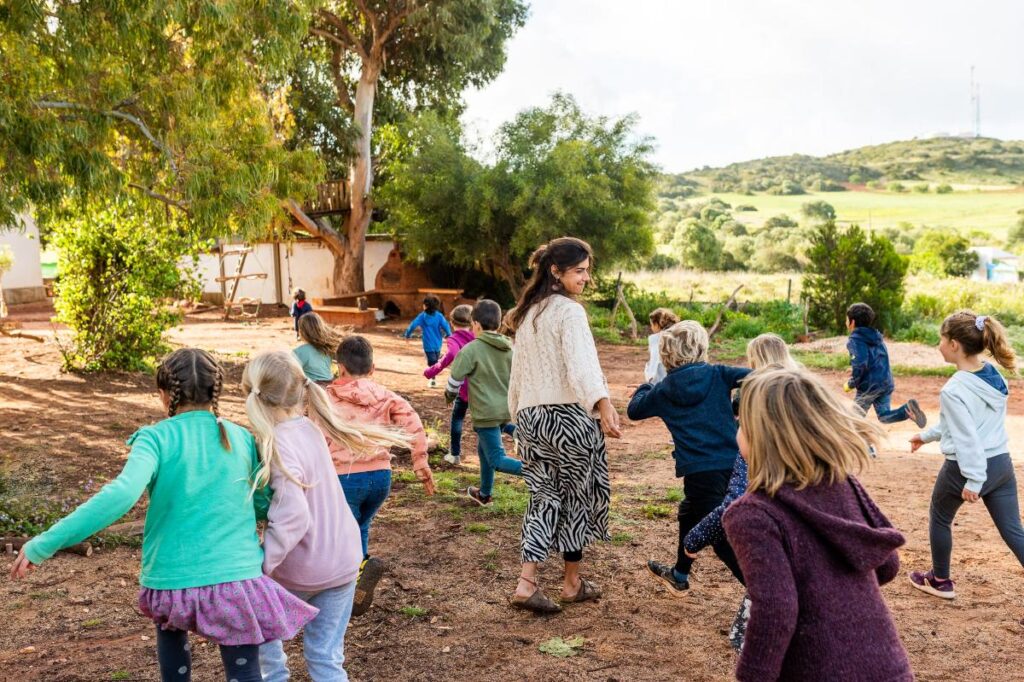
Time to play
Afternoons at school, especially in the early years of primary education, are free afternoons. Children can experiment and freely choose their games or participate in activities that may take place during the afternoon, such as gardening or crafts.
Connection with Nature
School routines are directly related to the rhythms of Nature. Inside the classroom, the theme of nature is frequently addressed in stories, songs and poems.
At school, we have a playground where students can climb trees, walk on and touch the earth, and perhaps lift a rock and find a lizard. At our school, we encourage nature walks and outdoor activities.
